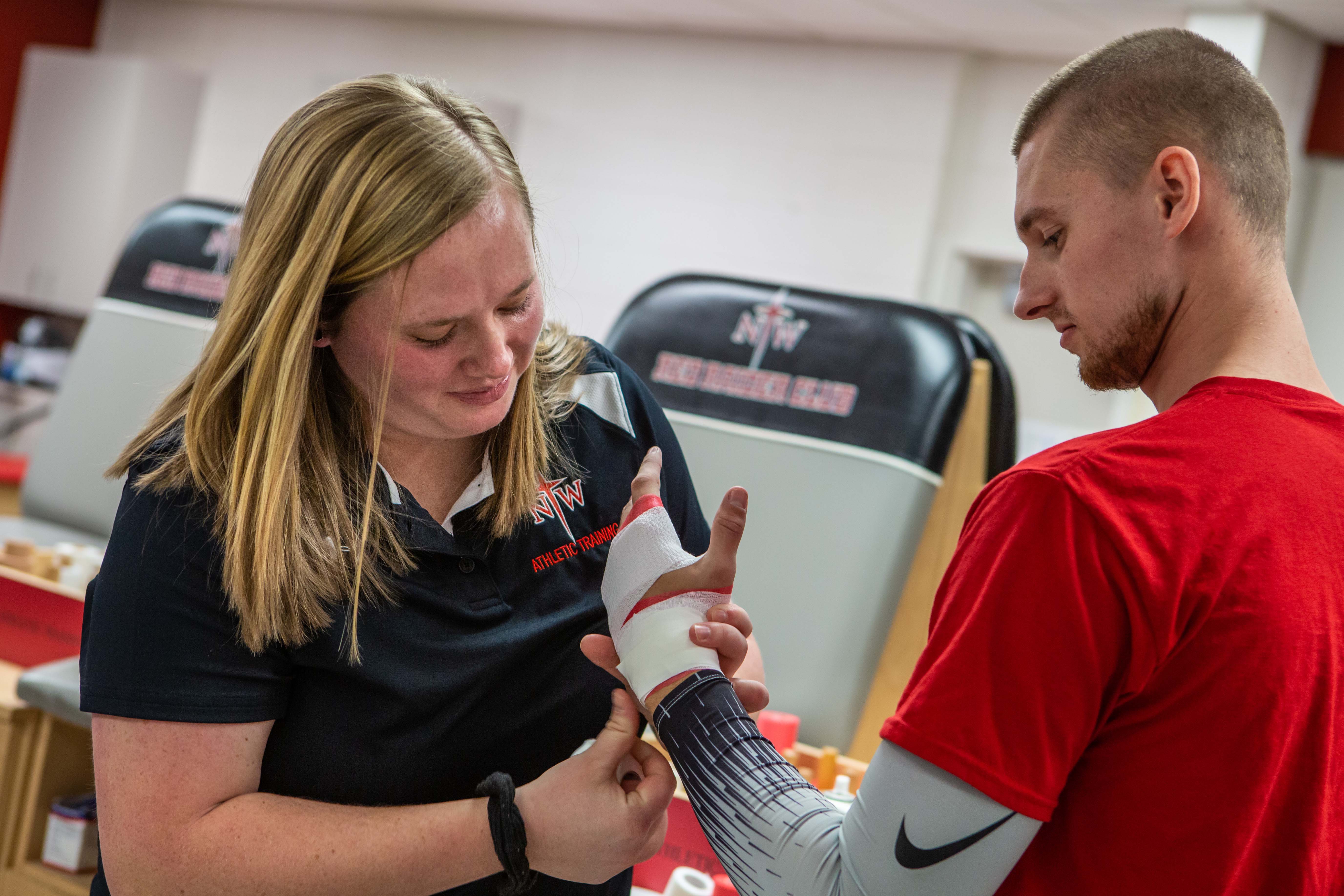Northwestern College is reducing the tuition rate for the college’s master’s degree in athletic training program from $700 per credit hour to $525 per credit hour. The tuition rate takes effect for the program’s first term, which starts in June of 2021.
“Northwestern has a long commitment to the preparation of health care professionals and to making its education affordable,” says Dr. D. Nathan Phinney, vice president for academic affairs. “In the context of the growing need for athletic training professionals, Northwestern has invested in a new facility and in top-notch faculty. Our new price recognizes the high quality of our program and reflects our desire to attract top students. It also demonstrates our commitment to help program graduates enter the field with a minimal financial burden.”
Northwestern’s faith-based program is accredited by the Commission on Accreditation of Athletic Training Education (CAATE) and will take two years, or six consecutive semesters, to complete. The first year is primarily residential, while there are options during the second year to be placed at clinical sites in different locations and do some coursework online. Following the completion of the program, Northwestern graduates will be well prepared to sit for the Board of Certification (BOC) exam to become certified athletic trainers.
Program Director Dr. Rick Loutsch says the program is focused on training through practice. “Students will get meaningful hands-on experience right away and throughout the program in a wide variety of settings,” he says. With a cohort of about 15 students, Northwestern will be able to provide individualized attention.
On-site courses and labs for the master’s program will take place in newly renovated facilities on the top floors of Van Peursem Hall alongside facilities for the new master’s degree in physician assistant studies.
Loutsch has been a member of Northwestern’s athletic training faculty since 2010 and previously served on the athletic training staff for five years. He earned a doctorate in athletic training at the University of Idaho and a master’s in exercise science from the University of Iowa. Joining him on the faculty is Dr. Doug Maury, coordinator of clinical education. He previously directed the athletic training program and health/physical education department at Bethel College in Kansas. Maury earned a doctorate in athletic training from A.T. Still University and a master’s in sport administration from Wichita State University.
The National Athletic Training Association continues to push for an increase in athletic training services provided to high schools, which will result in a need for more athletic trainers. The Bureau of Labor Statistics has forecast a 19% increase in athletic trainers nationally by 2028.
Northwestern first began offering a bachelor’s degree in athletic training in 2001. CAATE, however, is transitioning to a requirement that all accredited professional athletic training programs be graduate-level and result in the granting of a master’s degree in athletic training.
Applicants to the athletic training master’s program must have a bachelor’s degree and have taken prerequisite science courses as an undergraduate. Acceptance is guaranteed for Northwestern College graduates who meet the program’s admission requirements.
The application process opens June 30. For information or to apply, visit nwciowa.edu/AT or contact Danielle Vanderlei, enrollment counselor, at athletic.training@nwciowa.edu or 712-707-7359.




